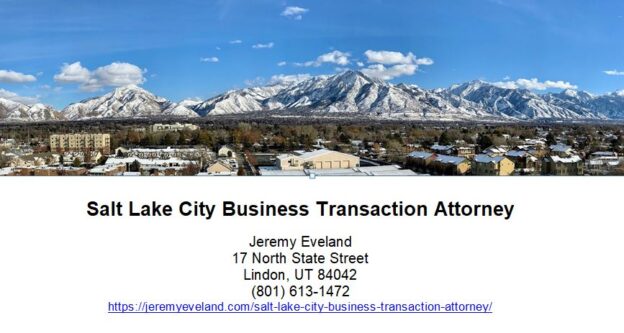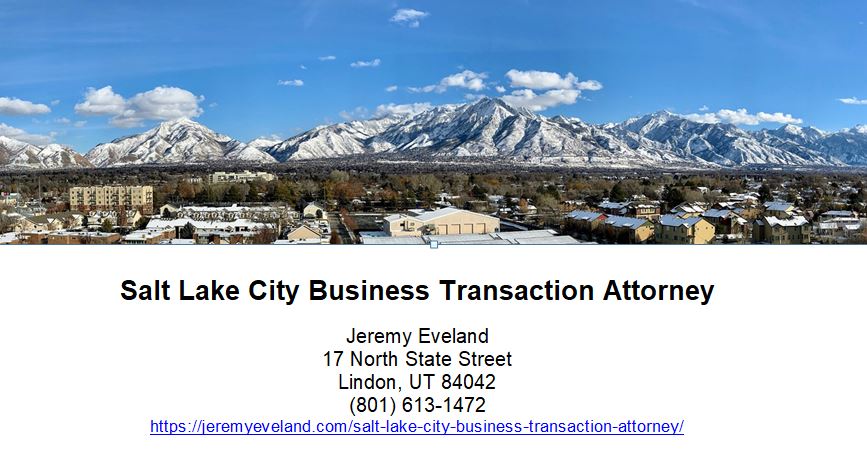Contract Negotiation
-
Negotiating Topics
- Introduction
- How to Develop Effective Negotiation Skills for Contract Negotiations
- What to Look for in a Contract Negotiation Proposal
- The Role of the Contracting Officer in Contract Negotiation
- How to Use Data to Your Advantage in Contract Negotiation
- Understanding the Contract Negotiation Process: A Step-by-Step Guide
- Why A Lawyer Should Be With You In Contract Negotiation
- Q&A
“Negotiate with Confidence – Get the Best Deal!”
Introduction
Contract negotiation is an important part of any business transaction. It is the process of negotiating the terms and conditions of a contract between two or more parties. It involves the exchange of information, the identification of common interests, and the resolution of differences in order to reach an agreement. Contract negotiation is a critical skill for any business professional, as it can help to ensure that all parties involved are satisfied with the outcome of the agreement. It is important to understand the basics of contract negotiation in order to ensure that the best possible outcome is achieved.
How to Develop Effective Negotiation Skills for Contract Negotiations
Negotiating contracts is a critical skill for any business professional. It requires a combination of knowledge, preparation, and effective communication. Here are some tips to help you develop effective negotiation skills for contract negotiations.
1. Research: Before entering into any negotiation, it is important to do your research. Understand the terms of the contract, the industry, and the other party’s interests. This will help you to identify areas of potential agreement and areas of potential conflict.
2. Prepare: Once you have done your research, it is important to prepare for the negotiation. Develop a strategy and plan for the negotiation. Identify your goals and objectives, and develop a list of potential solutions.
3. Listen: During the negotiation, it is important to listen to the other party. Listen to their concerns and interests, and try to understand their perspective. This will help you to identify areas of agreement and potential solutions.
4. Communicate: Effective communication is key to successful negotiations. Speak clearly and concisely, and be sure to explain your position and interests.
5. Negotiate: Negotiations are a give-and-take process. Be prepared to compromise and be flexible. Be willing to make concessions in order to reach an agreement.
6. Document: Once an agreement is reached, it is important to document the terms of the agreement. This will help to ensure that both parties understand and agree to the terms of the contract.
By following these tips, you can develop effective negotiation skills for contract negotiations. With the right preparation and communication, you can reach successful agreements that benefit both parties.
What to Look for in a Contract Negotiation Proposal
1. Clear and concise language: A contract negotiation proposal should be written in clear and concise language that is easy to understand. Avoid using overly technical or legal jargon.
2. Relevant information: Make sure the proposal includes all relevant information, such as the parties involved, the terms of the agreement, and any other pertinent details.
3. Negotiation objectives: Clearly state the objectives of the negotiation and the desired outcome.
4. Alternatives: Provide alternative solutions to the proposed agreement, if applicable.
5. Timelines: Include timelines for when the agreement should be finalized and any deadlines for responding to the proposal.
6. Legal considerations: Make sure the proposal takes into account any applicable laws or regulations.
7. Signatures: Include a signature line for each party to sign the agreement.
8. Review process: Outline a review process for the proposal, including who will review it and when.
9. Follow-up: Include a plan for follow-up after the agreement is signed.
The Role of the Contracting Officer in Contract Negotiation
The contracting officer plays a critical role in contract negotiation. The contracting officer is responsible for ensuring that the contract is fair and equitable to both parties, and that it meets the needs of the government. The contracting officer is responsible for negotiating the terms of the contract, including the price, delivery schedule, and other contractual provisions.
The contracting officer must ensure that the contract is in compliance with all applicable laws and regulations. The contracting officer must also ensure that the contract is in the best interest of the government. The contracting officer must also ensure that the contract is fair and equitable to both parties.
The contracting officer must also ensure that the contract is properly drafted and that all of the terms and conditions are clearly stated. The contracting officer must also ensure that the contract is properly executed and that all of the parties are in agreement with the terms and conditions of the contract.
The contracting officer must also ensure that the contract is properly monitored and that all of the parties are in compliance with the terms and conditions of the contract. The contracting officer must also ensure that the contract is properly enforced and that all of the parties are held accountable for their actions.
The contracting officer is responsible for ensuring that the contract is properly administered and that all of the parties are in compliance with the terms and conditions of the contract. The contracting officer must also ensure that the contract is properly managed and that all of the parties are in compliance with the terms and conditions of the contract.
The contracting officer is responsible for ensuring that the contract is properly negotiated and that all of the parties are in agreement with the terms and conditions of the contract. The contracting officer must also ensure that the contract is properly executed and that all of the parties are in agreement with the terms and conditions of the contract.
The contracting officer plays a critical role in contract negotiation and is responsible for ensuring that the contract is fair and equitable to both parties, and that it meets the needs of the government. The contracting officer must ensure that the contract is in compliance with all applicable laws and regulations, and that it is in the best interest of the government. The contracting officer must also ensure that the contract is properly drafted, executed, monitored, enforced, administered, and managed.
How to Use Data to Your Advantage in Contract Negotiation
Data is an invaluable tool in contract negotiation. By leveraging data, you can make informed decisions and ensure that you get the best deal possible. Here are some tips for using data to your advantage in contract negotiation.
1. Research the Market: Before entering into negotiations, it’s important to understand the market. Research the industry and the competition to get an idea of what is considered a fair price. This will help you determine what you should be asking for and what you should be willing to accept.
2. Gather Data: Collect data on the other party’s past contracts and performance. This will give you an idea of what they are likely to accept and what they are likely to reject.
3. Analyze the Data: Once you have gathered the data, analyze it to identify trends and patterns. This will help you understand the other party’s negotiating style and what they are likely to accept.
4. Use the Data: Use the data to your advantage during negotiations. For example, if you know that the other party has accepted a certain price in the past, you can use that information to your advantage.
5. Negotiate: Once you have gathered and analyzed the data, it’s time to negotiate. Be prepared to make concessions and be willing to compromise.
By using data to your advantage in contract negotiation, you can ensure that you get the best deal possible. Research the market, gather data, analyze it, and use it to your advantage during negotiations. With the right data, you can make informed decisions and get the best deal possible.
Understanding the Contract Negotiation Process: A Step-by-Step Guide
The contract negotiation process is an important part of any business transaction. It is a complex process that requires careful consideration and preparation. To ensure a successful outcome, it is important to understand the steps involved in the process. This guide will provide a step-by-step overview of the contract negotiation process.
Step 1: Identify the Parties Involved. Before beginning the negotiation process, it is important to identify all of the parties involved in the transaction. This includes the buyer, seller, and any other parties that may be involved in the negotiation.
Step 2: Establish the Negotiation Goals. Once the parties involved have been identified, it is important to establish the negotiation goals. This includes determining the desired outcome of the negotiation, as well as any potential areas of compromise.
Step 3: Prepare for Negotiations. Before beginning the negotiation process, it is important to prepare for the negotiations. This includes researching the other party’s interests and objectives, as well as gathering any relevant information that may be useful during the negotiation.
Step 4: Begin Negotiations. Once the parties have prepared for the negotiation, it is time to begin the negotiation process. This includes discussing the terms of the agreement, as well as any potential areas of compromise.
Step 5: Finalize the Agreement. Once the parties have reached an agreement, it is important to finalize the agreement. This includes drafting a contract that outlines the terms of the agreement, as well as any other relevant information.
Step 6: Sign the Agreement. Once the agreement has been finalized, it is important to sign the agreement. This is the final step in the contract negotiation process and is necessary to ensure that the agreement is legally binding.
The contract negotiation process is an important part of any business transaction. By following these steps, you can ensure that the negotiation process is successful and that the agreement is legally binding.
Why A Lawyer Should Be With You In Contract Negotiation
Contract negotiation is a complex process that requires a great deal of knowledge and expertise. Having a lawyer present during contract negotiations can be invaluable in ensuring that your interests are protected and that the agreement is fair and equitable. Here are some of the reasons why a lawyer should be with you during contract negotiations:
1. Knowledge of the Law: A lawyer is trained in the law and can provide you with advice on the legal implications of the contract. They can help you understand the terms of the agreement and ensure that your rights are protected.
2. Negotiation Skills: Lawyers are experienced negotiators and can help you get the best deal possible. They can help you understand the other party’s position and negotiate a favorable outcome.
3. Drafting Expertise: Lawyers are experts in drafting contracts and can ensure that the agreement is legally binding and enforceable. They can also help you identify any potential loopholes or areas of risk.
4. Dispute Resolution: If a dispute arises, a lawyer can help you resolve it quickly and efficiently. They can provide advice on the best course of action and represent you in court if necessary.
Having a lawyer present during contract negotiations can be invaluable in ensuring that your interests are protected and that the agreement is fair and equitable. A lawyer can provide you with the knowledge, skills, and expertise necessary to ensure that the contract is legally binding and enforceable.
Q&A
Q1: What is contract negotiation?
A1: Contract negotiation is the process of discussing and agreeing on the terms of a contract between two or more parties. It involves understanding the needs of each party, finding common ground, and coming to an agreement that is beneficial to all involved.
Contract Negotiation Consultation
When you need legal help with contract negotiation, call Jeremy D. Eveland, MBA, JD (801) 613-1472 for a consultation.
Jeremy Eveland
17 North State Street
Lindon UT 84042
(801) 613-1472
Related Posts
Business Transaction Lawyer West Valley City Utah
Do I Need A Permit To Start A Business In Utah?
Business Succession Lawyer Draper Utah
Business Contract Lawyer Salt Lake City
What Is The Difference Between Corporate And Commercial Law?
Business Contract Lawyer West Valley City
Business Lawyer West Jordan Utah
Irrevocable Life Insurance Trusts
What Is The Purpose Of A Business Attorney?




























